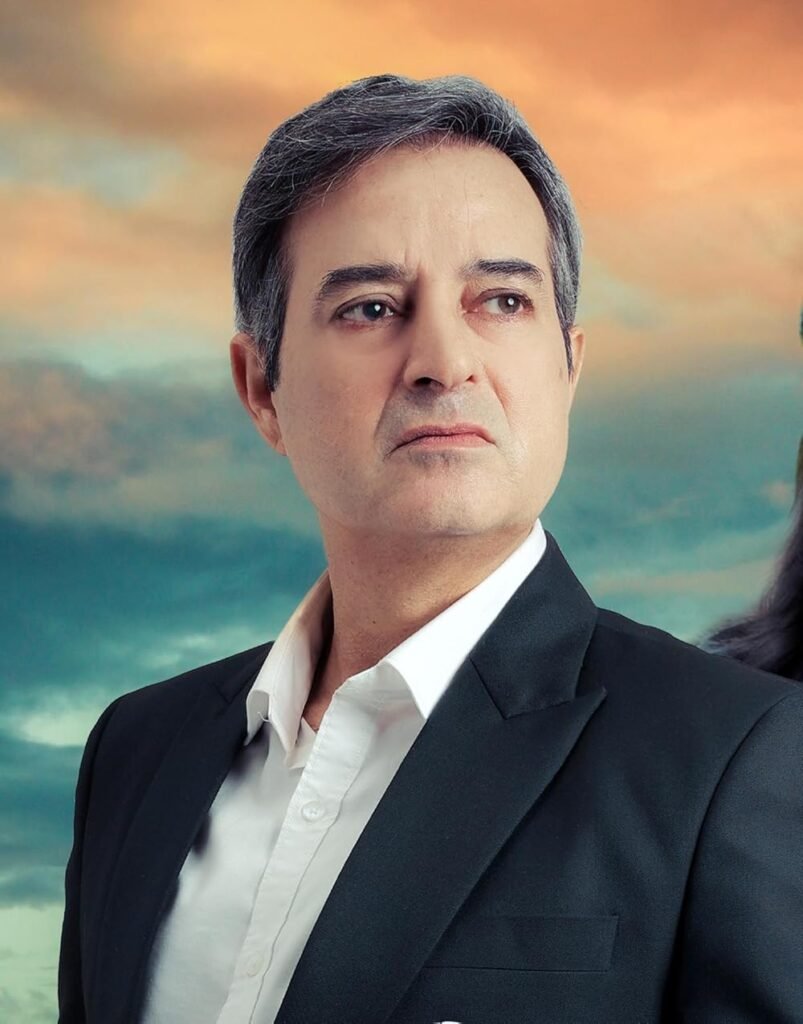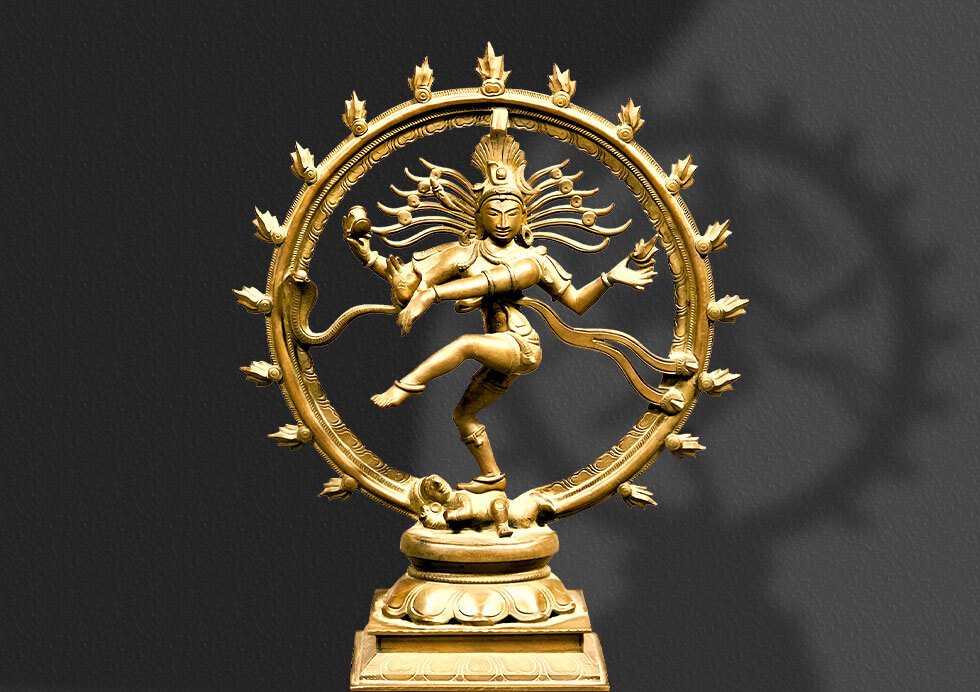Under the quiet shadow of the forests in Jharkhand, where the morning sun touches terraced fields and the air still smells of earth and cow dung, a young boy once dreamt beyond the simple hut he lived in. That boy, Rajesh Jais, didn’t carry the glitter of Mumbai when he walked the dusty lanes of Ranchi — he carried stories. Some mischievous, some warm, but all real.
And over time, those stories would carry him, on the Ranchi Express, to Delhi’s National School of Drama, and then aboard the Rajdhani Express to the heart of Bollywood.
Rooted in Simplicity
“I still live next to the jungle,” Rajesh chuckles, describing his current home, even after decades of working in Mumbai. “Every morning I look outside and feel like I’m still in Jharkhand.” There’s something poetic about this — a man who’s played roles from aristocrats to schoolteachers, yet chooses the humble rhythm of rural life. His heart remains where he first learned the value of simplicity — in the muddy streets and bustling vegetable markets of Chutia.
There were no English-medium schools or air-conditioned classes. His classroom had a cloth roof and two broken rooms, where one teacher taught four grades simultaneously. “We used to excuse ourselves from class, not by standing up, but by turning around,” he laughs. It wasn’t discipline that kept them in line, it was respect and curiosity. “We had no benches. We sat on the floor, ate washed carrots from the fields, and used red chili and mustard oil as our mid-day snacks.”

Of Chicken Thieves and Theatre Dreams
Childhood in Ranchi wasn’t glamorous. Rajesh recounts mischievous adventures — sneaking into chicken coops, stealing freshly laid eggs before the owners could count them. “Back then it was fun. Only later did I realize, maybe that egg was someone’s source of income.”
He began theatre almost accidentally. In a time when finding actresses was difficult, Rajesh was asked to play a female lead. He did, in full sari and makeup. “Someone’s sister even thought I was a real girl,” he laughs. That performance sparked something. “Acting gave me a chance to live other lives. What could be more beautiful?”
His roots in performance were forged in places like Marwari College and Doordarshan’s early studios in Ranchi. A salesman by day, theatre actor by night — Rajesh was relentless. He wrote, performed, worked in cloth shops, and even managed to teach tuitions. “There was no luxury of romance,” he says. “Love was expensive. Tea cost money. And I barely had that.”
Bombay Dreams, Delhi Dignity
Rajesh took the Ranchi Express to Delhi and joined the National School of Drama — the IIT of Indian theatre, as he puts it. There, he sharpened his craft and gained what many lack in Bollywood — professional training.
“People say I struggled, but I didn’t see it that way,” he reflects. “To set up a business or open a tea stall, it takes time. Acting is no different. I never saw my journey as a struggle — it was living.”
Mumbai, with its glossy buildings and ceaseless rush, didn’t intimidate him. He knew how to survive. Selling 50 shirts to land a sale, or using leftover fabric to charm a customer — those skills transferred into auditions, into understanding characters, into making art relatable.
The Actor and the Father
Rajesh is not just an actor — he’s a father. Two children — a son and a daughter — both born in Mumbai, but raised with a heart that beats for Jharkhand.
“I tried to bring them back to Ranchi,” he says. “Took them to the forests, waited for the magical monsoon, but they rebelled. ‘This is your city, Papa. Ours is Mumbai.’”
It was a heartfelt tug-of-war between roots and wings. But Rajesh didn’t force them. He wanted them to see his world — the mud houses, the sudden rains, the open fields — and understand why he still feels alive when surrounded by green hills rather than glass towers.
He now plans to build a hut for himself — with mango trees, a cow, no tiles, and mud walls — “a home that speaks to my soul,” he says.
Acting as Meditation
For Rajesh, acting isn’t just a profession. “It’s my stress buster, my meditation,” he says. “Some people smoke, some drink. I act.” His lifestyle is disciplined — yoga in the morning, a walk in the evening, minimal food indulgences, and lots of self-reflection.
His son once wanted to be an actor but changed his mind. “He saw me work so hard, eat less, sacrifice sleep. He said, ‘No Papa, this life is too disciplined for me.’” And Rajesh respected that.
“Everyone sees the glamour,” he explains, “but very few see the preparation. We dance in -7 degrees, bare-bodied, because the script demands it. Shahrukh at 60 does action scenes — imagine the discipline behind that.”

Cinema, Society, and the Sacred Balance
Rajesh doesn’t just act — he thinks. Deeply. About the kind of stories we tell. About why films like Animal exist and what responsibility artists hold.
“There’s a difference between movies and cinema,” he explains. “Movies are commerce. Cinema is culture, education, and philosophy. I work for cinema.”
He believes in stories rooted in truth — like Panchayat and Scam 1992. Simple narratives that hit home. “India lives in its villages,” he says. “That’s where the real stories are.”
As he talks about acting in Crime Patrol, he mentions how real stories are often diluted to be digestible for TV. “But their essence remains — to educate, to reflect society.”
From Scripts to Statehood
Rajesh has lived through the birth of Jharkhand and feels its unrealized potential keenly. “25 years since statehood, and yet, tourism is underutilized. Look at Kerala, Rajasthan — they preserved their identity and built on it. Jharkhand has forests, waterfalls, hills. But we’ve failed to make it presentable.”
His love for tribal culture is deep. “Their simplicity became my strength. I learned discipline from them. Their life was my first school.”
A Different Kind of Rich
Rajesh doesn’t measure success in cars or cash. “I’m rich because I’ve lived so many lives. A fisherman, a lawyer, a professor, a driver, a king. All in one lifetime.” That’s his website’s tagline too: “What a beautiful way to live so many lives in one life.”
He believes failure is essential. “If I had everything handed to me, I’d have never studied. Adversity gave me purpose.”
He doesn’t believe in overnight fame or Instagram reels. “Don’t chase numbers,” he advises young artists. “Chase substance. Rehearse till you shine. Don’t be a flash — be fire.”
Clean Hands, Clear Conscience
Beyond acting, Rajesh is a citizen first. “I hate when people litter and blame the government. This is our country. Keep it clean.” He’s deeply critical of the tendency to blame others for what we ourselves ruin.
He shares how, abroad, Indians behave perfectly — but return home and spit on the streets. “It’s not about rules,” he says. “It’s about respect.”
The Final Curtain Call
As the conversation draws to a close, Rajesh reflects on his life: from Marwari College to NSD, from mud-caked schoolyards to glitzy sets. Yet, even now, he sees himself as a student. “I learn from every character. Every role is like reading a new book. When I die, I’ll go fully loaded — with stories, memories, and lives lived.”
Because Every Story Deserves to Be Told
Rajesh Jais isn’t just an actor. He’s a storyteller, a bridge between Jharkhand’s soul and Bollywood’s spotlight. His message? Dreams don’t need fancy schools or silver spoons. They need sincerity, sacrifice, and a little bit of madness.
And maybe that’s why his story — grounded in soil, lifted by spirit — deserves to be told.

No responses yet